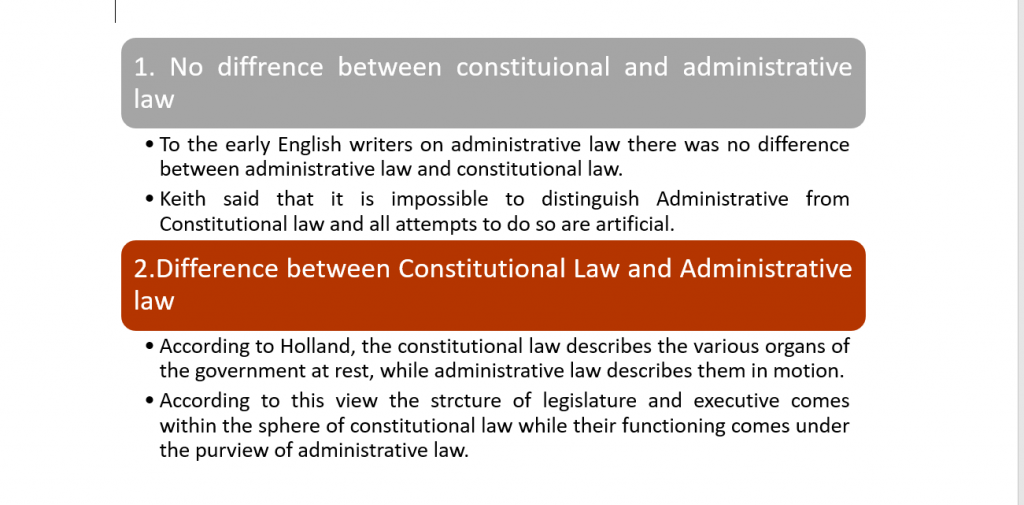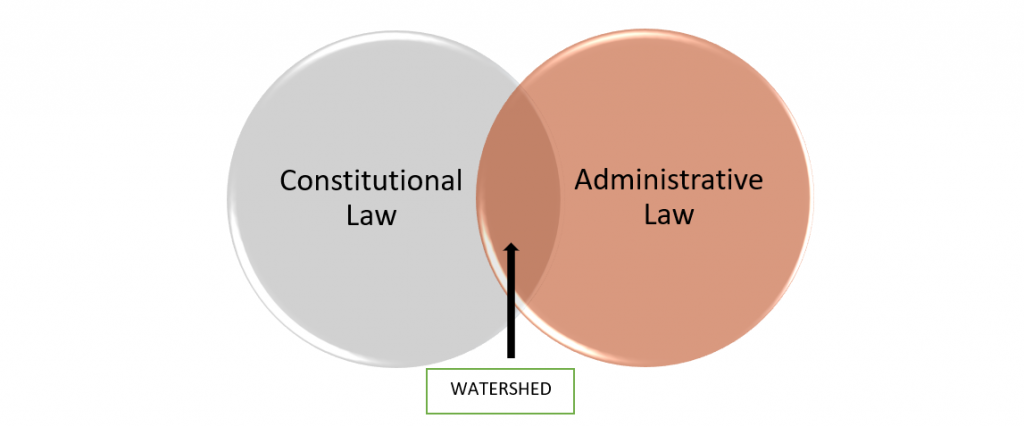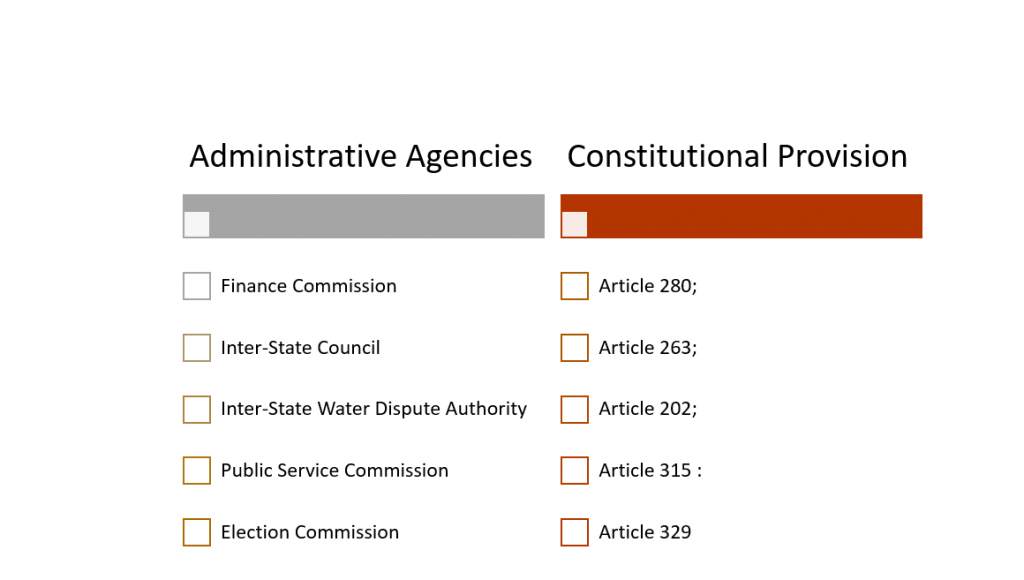As every law of the State must satisfy the Constitutional benchmark, it is essential to know the relationship between the Constitutional law and the Administrative law of the State. Constitutional law is the genus and administrative law its species, hence the judge-made law must comply with the constitutional provisions. There are two schools of thought regarding distinction between constitutional and administrative law.

There are following differences between Constitutional Law and Administrative Law.
Difference between Administrative law and Constitutional law:
- A Constitution is the supreme law of the land. No law is above the constitution and hence must satisfy its provisions and not be in its violation. Administrative law hence is subordinate to constitutional law. In other words, while Constitution is the genus, administrative law is a species.
- Constitution deals with the structure of the State and its various organs. Administrative law, on the other hand, deals only with the administration.
- While Constitution touches all branches of law and deals with general principles relating to organization and powers of the various organs of the State; administrative law deals only with the powers and functions of the administrative authorities.
- Constitutional Law mainly deals with various organs of a state. Administrative Law deals with the organs of the state as motion.
- Constitutional Law mainly deals with the structure of the state. Administrative Law mainly deals with the various functions of the state.
- Constitutional law deals with the rights and, Administrative law lay emphases on public needs.
- In Constitutional democracy, power is limited by express or implied constitutional limitations and values. In administrative law the exercise of constitutional power is limited by the norms and principles of administrative law of fairness, reasonableness and justness. Administrative law makes constitutional governance public-centric and the State incrementally ethical.
- Constitutional Law also gives guidelines about the intentional relations. Administrative Law does not deal with the International Law. It deals exclusively with the powers and functions of administrative authorities
- Constitutional Law deals with the general principal of state pertaining to all branches. Administrative Law deals with the powers and functions of administrative authorities, including services, public departments, local authorities and other statutory bodies exercising administrative powers, quasi-judicial powers, etc.
- Constitutional Law demarcates the constitutional status of Ministers and public servants. Administrative Law is concerned with the organization of the services or the working of the various government departments.
- Constitutional Law imposes certain negative duties on administrators, if they are found violating the fundamental rights of the citizens and etc. It also imposes certain positive duties on administrators, viz, implementation of social welfare schemes. The administrators have to follow Constitutional Law first and next the Administrative Law.
- Constitutional Law have complete control on the administrative law and administrators of the country. The administrators should perform their functions with utmost obedience to Constitutional Law. Administrative Law is jusi a subordinate lo Constitutional Law.
- In nutshell administrative authorities should first follow the Constitution and then work as per the administrative law.
Similarities:
- Both Constitutional Law and Administrative Law are Public Law.
- Both have the same source of law.
CONSTITUTIONAL LAW AND ADMINISTRATIVE LAW IN INDIA
India has a written Constitution which is the grundorm of the legal system in country. It conditions and overrides all legislative and administrative action. The fact, however, remains that administrative law has become today sui juris and is recognised as a separate, independent branch of the legal discipline though at times constitutional law and administrative law may overlap.
As regards the relationship between constitutional law and administrative law, the correct position may be said to be that if one draws two circles of administrative law and constitutional law, at a certain place they may overlap and this area may be characterised as the ‘watershed’ in administrative law.’

As regards Indian position, one can include in the watershed the whole system of control mechanism which has been embodied in the Constitution for the control of the actions of administrative authorities i.e. Articles 32, 226, 136, 227, 300 and 311.
Moreover, in the area of watershed may also come those administrative agencies which are provided for by the Constitution itself e.g.,

Moreover, the constitutional limitations on delegation of powers to the administrative authorities and constitutional provisions relating to Fundamental Rights which impose fetters on administrative action are also included in the watershed.



